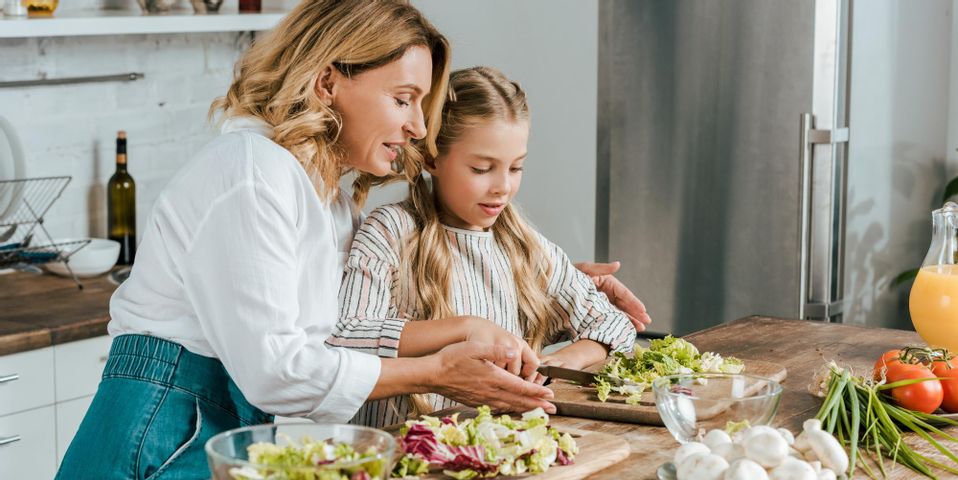
Nutrition affects multiple aspects of your life, from physical well-being to mental health. If you’re committed to getting healthier, whether to mitigate an existing health issue, lose weight, or improve overall wellness, changing your diet is an excellent first step. Here’s what you can do when shopping for groceries, eating out, or dining in.
How to Eat Healthier
1. Be Conscious of Portions
Most delis and eateries serve generous portion sizes. While this gives you plenty of food for your money, stretch it even further by saving half for later.
If you’re planning to order multiple courses, such as an entree and dessert, don’t order it all at the same time. Eat one course at a time to determine how hungry you are; you can always take dessert to go.
If you’re eating at home, measure food to ensure you have one serving at a time. Generally, a portion the size of your palm counts as one serving.
2. Fill Up on Fruits & Vegetables
 Fruits and vegetables should make up a significant portion of your daily food intake. These can be consumed fresh, frozen, or juiced in anything from a salad to a smoothie.
Fruits and vegetables should make up a significant portion of your daily food intake. These can be consumed fresh, frozen, or juiced in anything from a salad to a smoothie.
When eating out, consider ordering salads with dressing on the side, or get a fresh fruit bowl. At home, cut up fruit to put on your cereal in the morning, or put it in a smoothie.
Snack on fruits and vegetables throughout the day with easy-to-eat produce like bananas, apples, oranges, carrots, celery, and broccoli. When shopping for groceries, ensure any canned fruit you buy is in juice rather than syrup.
3. Eat Slowly
If you’re used to wolfing down your food, you may be surprised that it takes the brain about 20 minutes to recognize the body is full after eating. By slowing down, you’ll give your mind a chance to catch up with your body so you don’t overeat.
Taking your time can also improve digestion, reduce gastrointestinal issues, and enhance nutrient absorption. Drinking water or unsweetened tea between bites can also improve digestion and help you feel full faster.
4. Eat Mostly Whole Grains
Refined carbohydrates—such as those found in white bread; pasta; and sugary items like cookies, cakes, and candy—convert to glucose quicker than complex carbohydrates. You can find the latter in fruits; vegetables; and whole grains like oatmeal, quinoa, and wild rice.
While it’s fine to enjoy sweets and other refined carbs in moderation, try to swap out most of your refined carbohydrate intake for whole grains to stabilize blood sugar, help you feel full longer, and maintain a healthy weight.
Find a broad selection of healthy groceries at Pritzl’s Trading Post in Nekoosa, WI. Since 1976, this family-owned business has served Wood County residents and travelers, providing a variety of groceries, deli meats, and bakery goods. They also have hunting and fishing supplies and home and garden gear. Call (715) 325-2281 to speak with a friendly team member, and visit the website to learn more about their products.
About the Business
Have a question? Ask the experts!
Send your question

